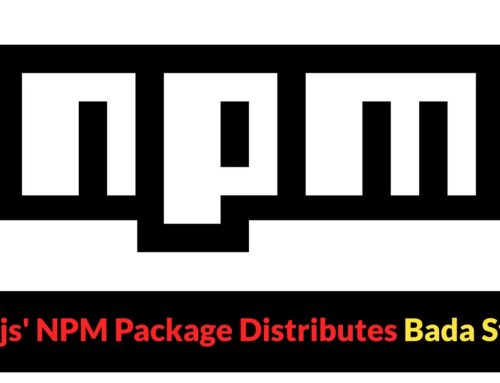
Russian Fake-News Network CopyCop Added 200+ New Websites to Targets US, Canada and France
Unmasking CopyCop: Russia’s Escalating AI-Driven Disinformation Campaign
The landscape of information warfare has taken a disturbing turn with the significant expansion of CopyCop, a Russian covert influence network. This sophisticated operation has dramatically ramped up its disinformation efforts, adding over 200 new fictional media websites since March 2024. This aggressive growth signals a critical escalation in Russia’s ongoing information warfare, directly targeting democratic nations such as the United States, Canada, and France with increasingly polished and AI-generated deception tactics.
For cybersecurity professionals, IT security analysts, and anyone concerned with the integrity of digital information, understanding the evolution and methods of CopyCop (also designated as Storm-1516) is paramount. This network represents a stark reminder of the persistent and evolving threats to national security and public discourse posed by state-sponsored disinformation campaigns.
The Evolution of CopyCop: A Glimpse into Storm-1516
CopyCop, or Storm-1516, is not a new entity in the realm of state-sponsored cyber operations. However, its recent expansion marks a significant methodological shift. The addition of hundreds of new websites in such a short period indicates a dedicated and well-resourced effort to broaden its reach and amplify its propagandistic messages. These new sites are designed to mimic legitimate news outlets, making it increasingly difficult for the average reader to distinguish fact from fabrication.
The adoption of artificial intelligence in content generation is a game-changer for CopyCop. AI allows for the rapid production of vast quantities of seemingly authentic articles, across a multitude of topics and perspectives, at a scale previously unimaginable. This not only enhances the volume of disinformation but also improves its linguistic quality and thematic relevance, making it more persuasive and harder to detect by automated systems.
Targeted Nations: US, Canada, and France Under Siege
The focus of CopyCop’s expanded operations on the United States, Canada, and France is a strategic choice. These nations are key democratic powers, and undermining public trust, sowing discord, and influencing political outcomes within them aligns with established Russian foreign policy objectives. The disinformation spread often exploits existing societal divisions, disseminates false narratives about political events, and attempts to delegitimize democratic institutions.
The impact of such campaigns can be profound, ranging from eroding public confidence in legitimate media and government bodies to potentially influencing elections and public opinion on critical policy decisions. The sheer volume of new websites suggests an intent to saturate the information environment with narratives favorable to Russian interests, making counter-disinformation efforts increasingly challenging.
The Role of Artificial Intelligence in Deception
AI’s role in CopyCop’s current strategy extends beyond simple content generation. Advanced AI models can:
- Generate plausible news articles: Crafting stories that are grammatically correct, stylistically coherent, and relevant to current events.
- Create synthetic personas: Developing fake social media profiles and online identities to disseminate content and engage with audiences, appearing as genuine users.
- Automate translation and localization: Adapting narratives for different linguistic and cultural contexts, increasing their effectiveness across diverse populations.
- Bypass detection mechanisms: Producing content that may evade initial checks by automated fact-checking tools due to its apparent originality and complex structure.
This sophisticated use of AI represents a troubling evolution, raising the bar for cybersecurity defenses and counter-disinformation strategies. The seamless integration of AI into these networks makes them more resilient, scalable, and difficult to dismantle.
Remediation Actions and Mitigating Disinformation
Combating sophisticated disinformation networks like CopyCop requires a multi-faceted approach involving technology, education, and collaboration. While there isn’t a specific CVE associated with disinformation campaigns, the principles of robust cybersecurity and critical thinking apply.
- Enhance Media Literacy: Educate the public on how to identify fake news, check sources, and critically evaluate online information. Initiatives promoting media literacy are crucial.
- Invest in AI-Powered Detection: Develop and deploy advanced AI and machine learning tools capable of identifying AI-generated text, image manipulation, and coordinated inauthentic behavior on a massive scale.
- Strengthen Collaborative Efforts: Foster better information sharing and collaboration between government agencies, cybersecurity firms, academic researchers, and social media platforms to quickly identify and neutralize disinformation campaigns.
- Promote Trusted News Sources: Support and highlight credible journalism and fact-checking organizations to provide reliable information as an antidote to disinformation.
- Develop Platform Accountability: Encourage social media platforms to take greater responsibility for content moderation, transparency in political advertising, and rapid removal of identified disinformation.
- Monitor Digital Footprints: Cybersecurity analysts should actively monitor for new domain registrations, website content patterns, and social media amplification efforts that align with known disinformation tactics.
Key Takeaways: Navigating the Information Battlefield
The expansion of the Russian CopyCop network, with its addition of over 200 AI-generated fake news websites, marks a critical escalation in state-sponsored information warfare. This sophisticated campaign, targeting the US, Canada, and France, leverages artificial intelligence to produce highly convincing and voluminous disinformation. Combating this threat requires a concerted effort involving enhanced media literacy, advanced technological detection, and robust international collaboration. Staying vigilant and critically evaluating online information is more crucial than ever in safeguarding democratic discourse and national security.





